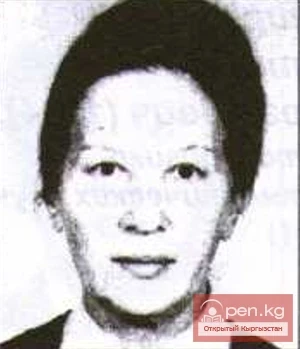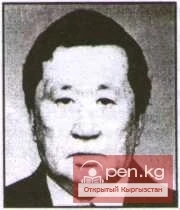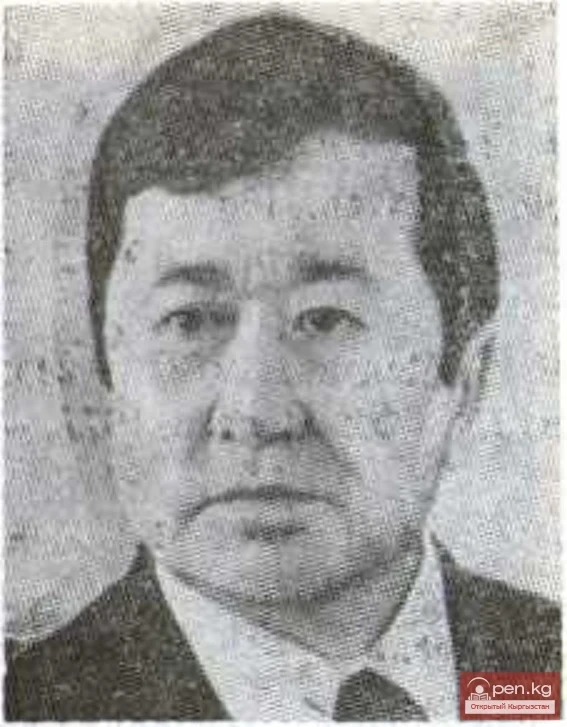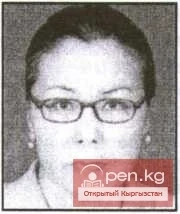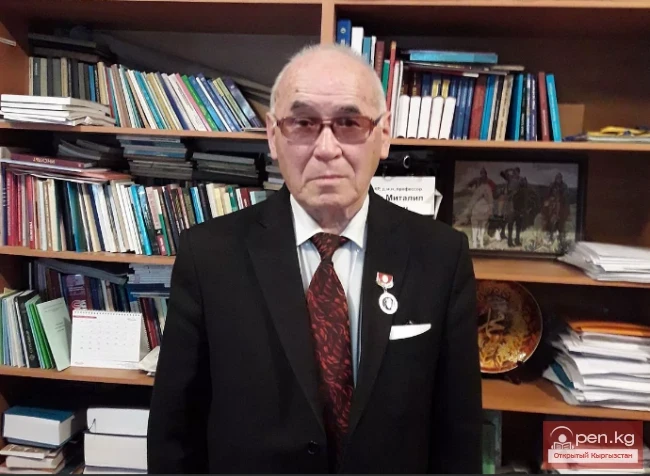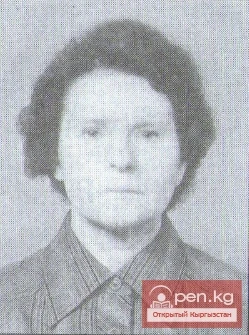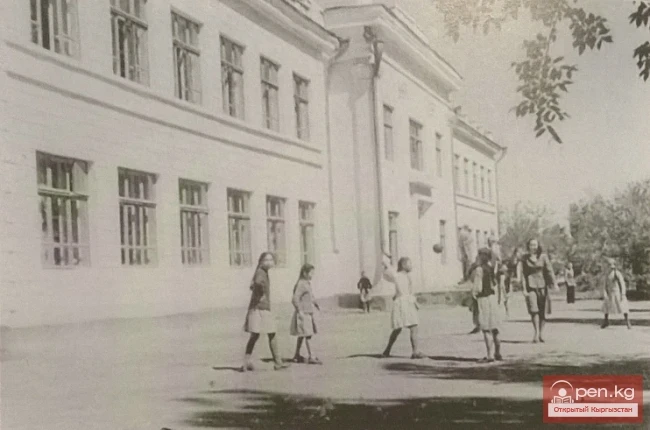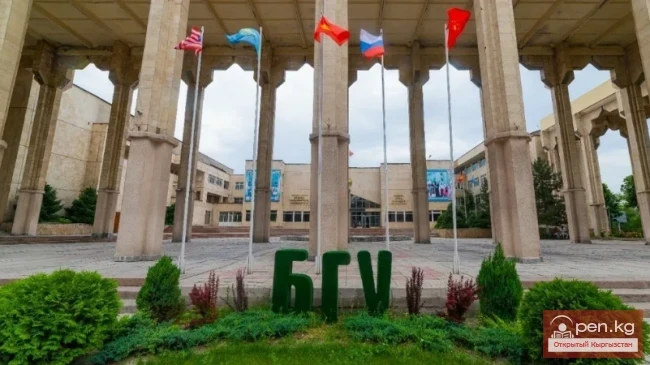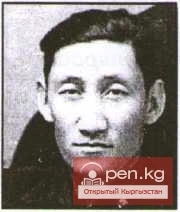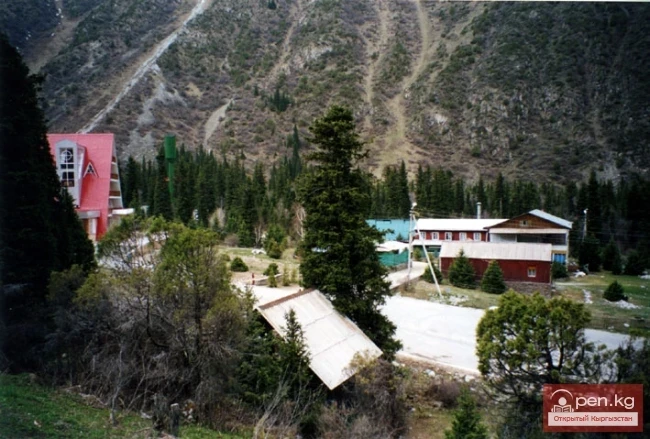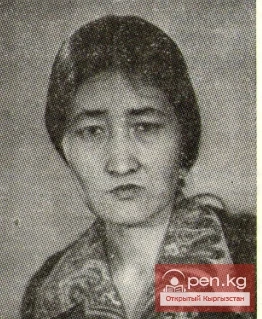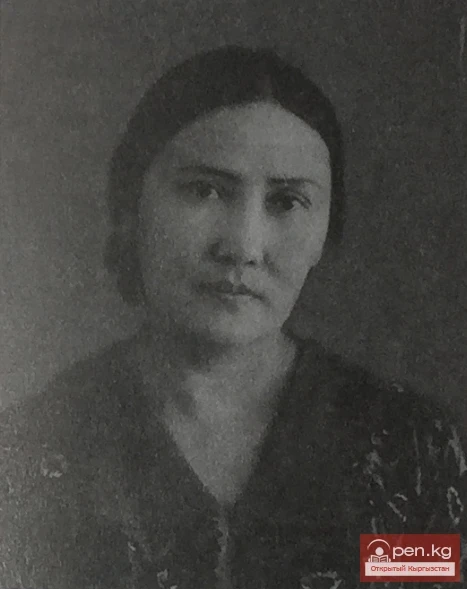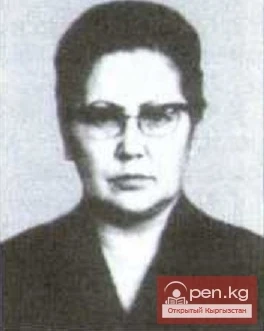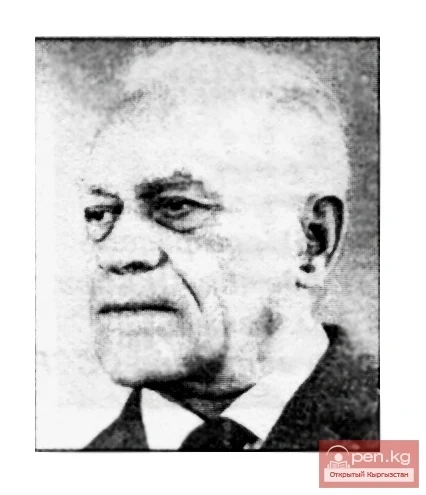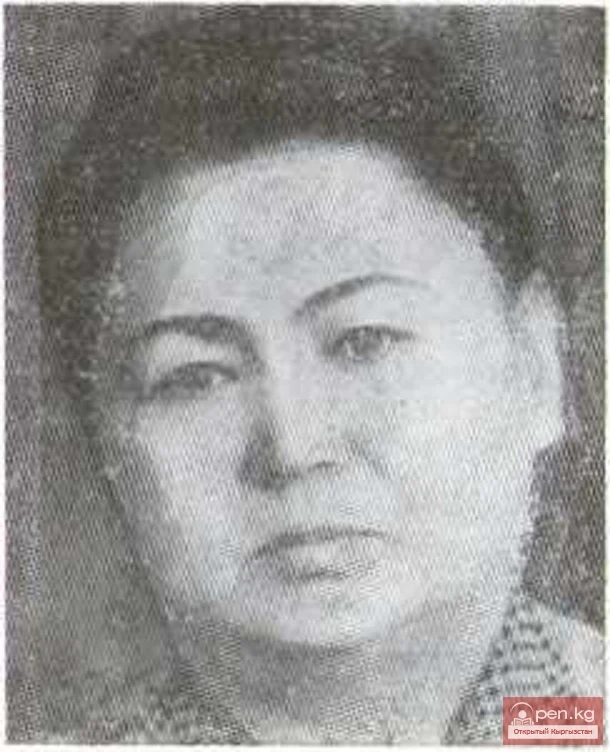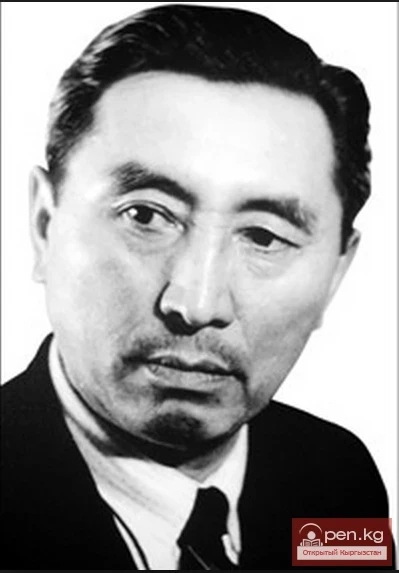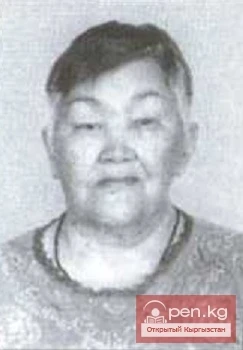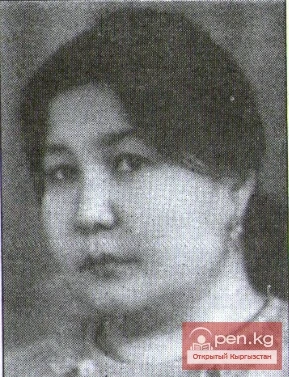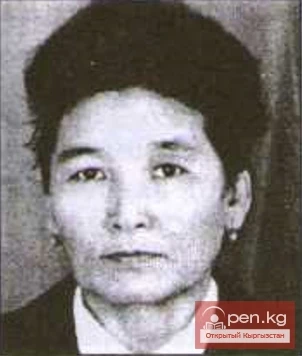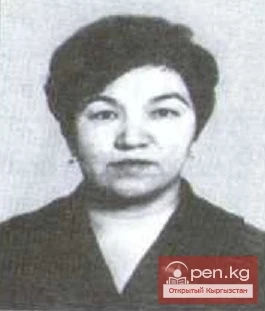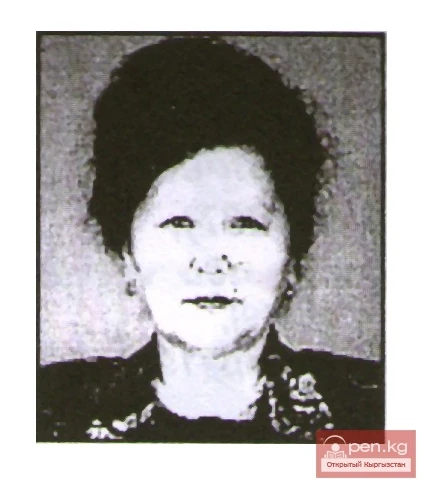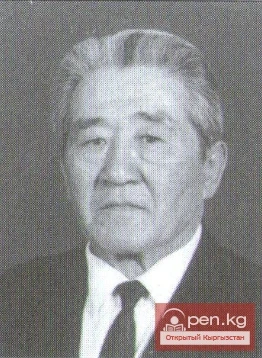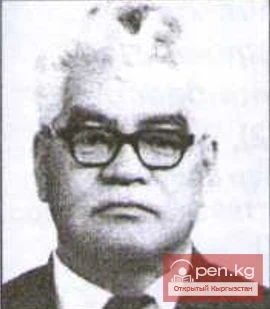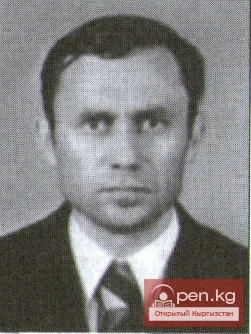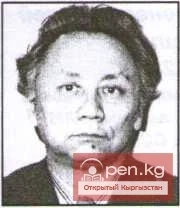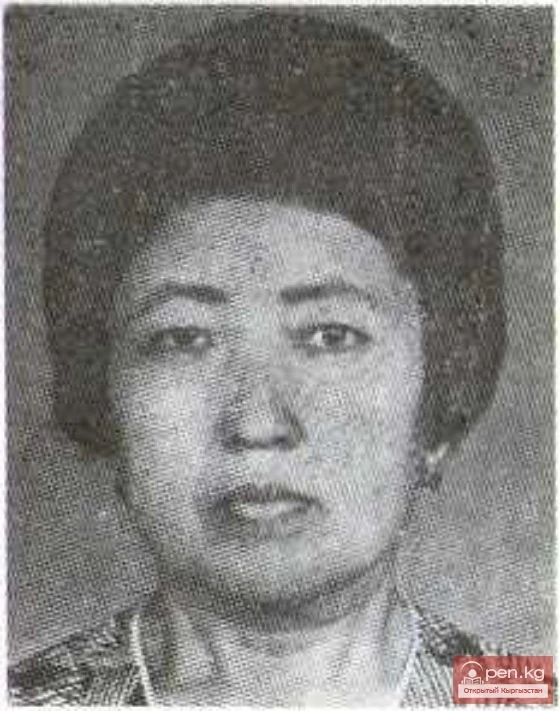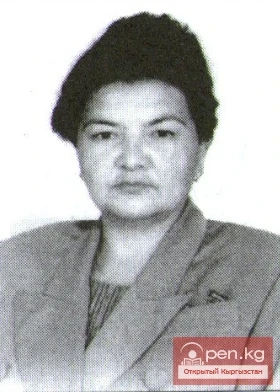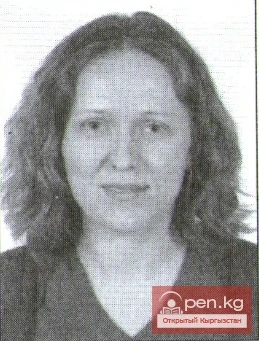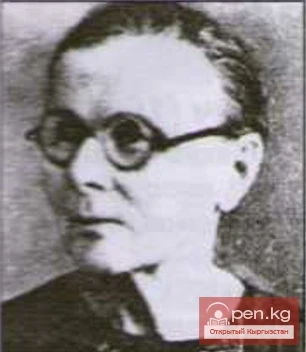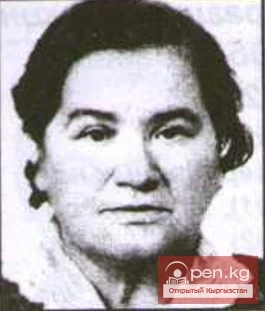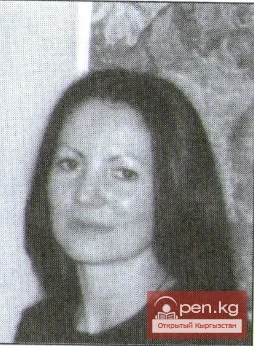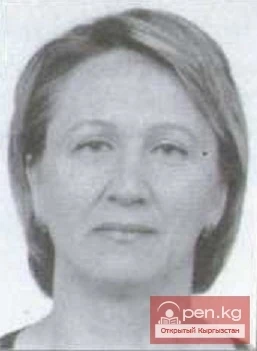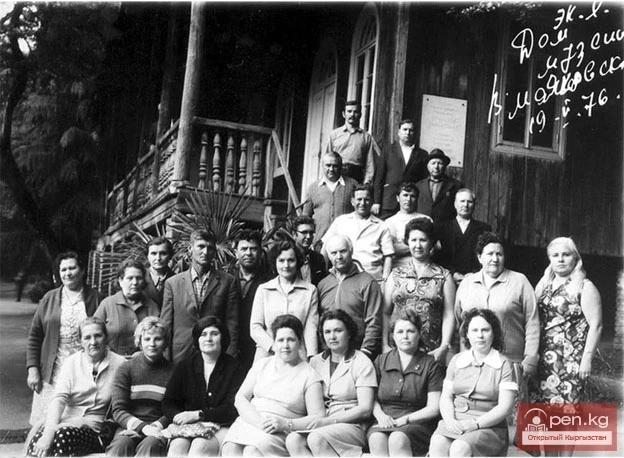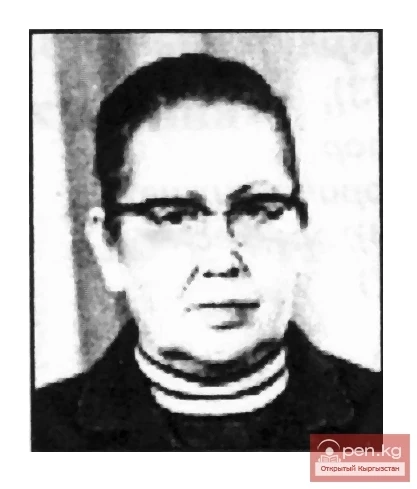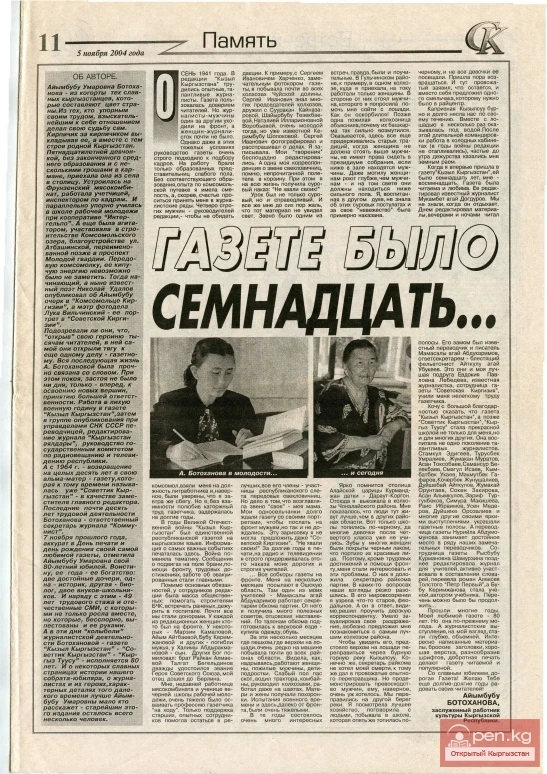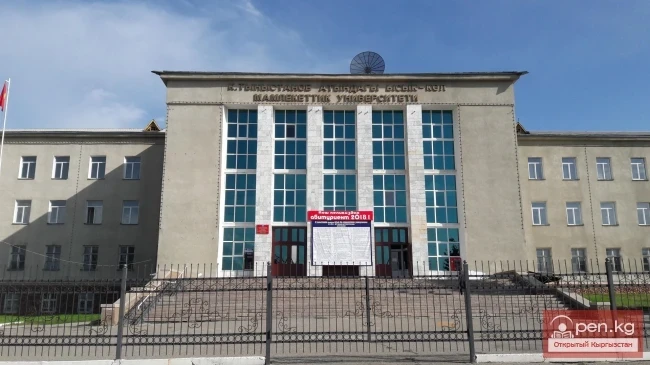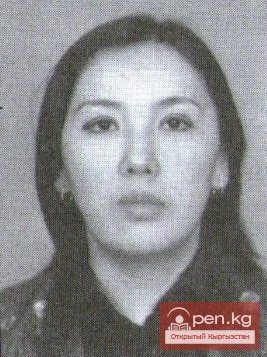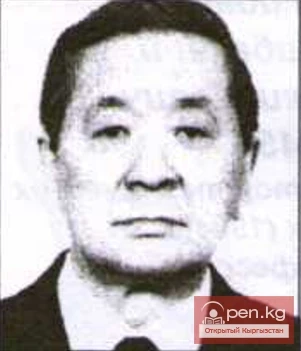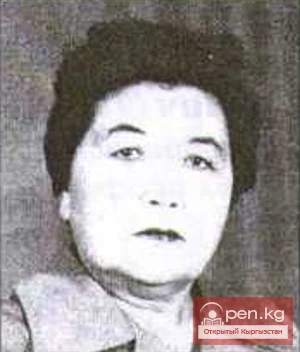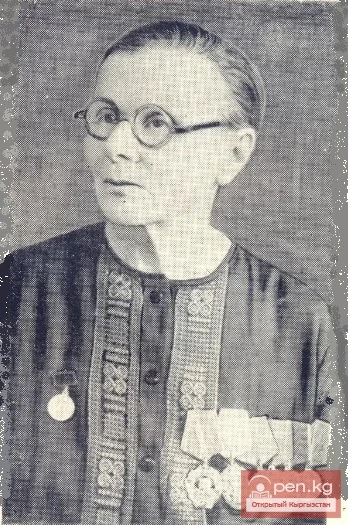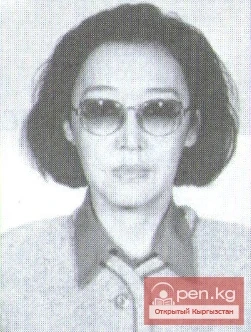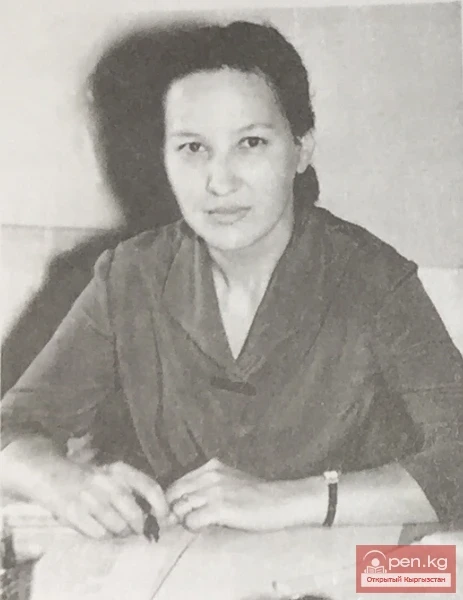
T. Zh. Saymasaevna (1928-2003)
Zh. S. Tatibekova was born in 1928 in Tashkent in a family of civil servants.
Her father, Saymasai Tatibekov, was a participant in the Civil War and actively participated in the land and water reform. Her mother, Maria Ilinichna Vasilieva, worked in Komsomol and trade union organizations, in public education, and was a personal pensioner of union significance.
From 1936 to 1946, Zhanneta studied at a secondary school in Frunze, and in 1950 graduated with honors from the Kyrgyz State Pedagogical Institute. After studying in graduate school at Kyrgyz State University, she defended her dissertation in 1956 and became a candidate of historical sciences. From 1955 to 1977, Zh. Tatibekova worked at the Institute of History of the Academy of Sciences of the Kyrgyz SSR as a junior and senior researcher, and then as head of a department.
From 1977 to 1987, Zh. S. Tatibekova served as the rector of the Kyrgyz State Women's Pedagogical Institute named after V.V. Mayakovsky. While working as rector, she successfully combined pedagogical, administrative, and research work. In 1969, she was awarded the degree of Doctor of Historical Sciences. For her achievements in pedagogical activities, she was awarded the title of professor.
During Zh. S. Tatibekova's tenure as rector, significant changes occurred in the structure of the institute: the number of departments increased from 23 to 28, future educators were trained in 12 specialties, and over 5,000 students studied in 6 faculties. In 1981, a separate pedagogical faculty was created based on the pedagogical department of the music and art faculty (preschool pedagogy). Accordingly, departments of Kyrgyz language and literature, methods of primary education, and Russian language were established in non-language faculties.
For her contributions to the training of pedagogical personnel, the Kyrgyz Women's Pedagogical Institute named after V.V. Mayakovsky was awarded a Certificate of Honor by the Presidium of the Supreme Soviet of the Kyrgyz SSR in October 1982.
In 1984, the only defectology department in the Kyrgyz Republic was opened at the institute, which began training specialists in special pedagogical areas such as oligophrenopedagogy with an additional specialization in "preschool pedagogy," surdopedagogy with additional specializations in "special psychology" and "special preschool pedagogy." Based on this department, a special center was later opened to assist children with developmental disabilities and their parents. In their activities, the educators of the department collaborated with the International Fund of Great Britain and Denmark "Save the Children."
In her research work, Zh. S. Tatibekova conducted a comprehensive and in-depth study of the history of the women's question.
The women's question is about the ways and means of liberating working women, the practical implementation of their full equality with men, and involving women in active participation in all economic and socio-political life of society.
The decisive condition for the liberation of working women, including Kyrgyz women, was the victory of the Great October Socialist Revolution. It ensured freedom and equality for women not just in words but in practice, fundamentally changing their status in society and family.
Main works of Zh. S. Tatibekova:
1. The Liberation of Kyrgyz Women by the Great October Revolution. Frunze, "Ilim," 1963.
2. The History of the Kyzyl-Kiya Coal Mine. Frunze, "Ilim," 1964.
3. Women of Soviet Kyrgyzstan in the Struggle for Socialism and Communism. Frunze, "Ilim," 1967.
4. The Great October and Women of Kyrgyzstan. Frunze, 1975.
5. The Kyrgyz Socialist Nation in the Conditions of Developed Socialism. Frunze, "Kygyzstan," 1977.
6. Only Girls Study at the University. Frunze, "Kyrgyzstan," 1984.
In her works, Zh. Tatibekova examines the forms and methods of working with women, objectively noting both the positive results of the liberation of women in Kyrgyzstan and its drawbacks.
Her public activity was diverse. She was elected as a deputy of the Lenin District and Frunze City Council of People's Deputies, a member of the commission of the Kyrgyz Council of Trade Unions, the presidium of the Republican Society "Knowledge," the board of the Republican Society of Friendship with Foreign Countries, the Kyrgyz Committee for Peace, the presidium of the Republican Women's Council, and the editorial board of the magazine "Kyrgyzstan Ayalary" ("Women of Kyrgyzstan").
Zh. S. Tatibekova embodies professionalism, organizational skills, pedagogical talent, public activism, and maternal warmth—all dedicated to serving the people and the homeland. However, it would be unfair to consider this person, with a capital letter, merely a skilled administrator, a dry scholar, and a demanding educator.
Zhanneta Saymasaevna Tatibekova is one of the prominent, highly intellectual women of Kyrgyzstan, a historian, a talented educator, and a public figure. She worked as a researcher and head of a department at the Institute of History of the Academy of Sciences of the Kyrgyz SSR, and as rector of the Kyrgyz State Women's Pedagogical Institute. She was elected an academician of the Russian Academy of Pedagogical and Social Sciences and an academician of the New York International Academy of Sciences. She is the author of over 100 scientific works, including 7 monographs on issues of women's education and women's participation in the socio-economic life of Kyrgyzstan.
She was a devoted wife, a tender mother, and a loving grandmother. Their strong family, mutual understanding, and spiritual harmony with her faithful life partner, the prominent economist and professor S.M. Mansurkhodjaev, can serve as a remarkable example for many. "A good half is an inexhaustible treasure," say Kyrgyz people about their life partner. All of this applies perfectly to the bright image of Zhanneta Saymasaevna.
Women of Kyrgyzstan
